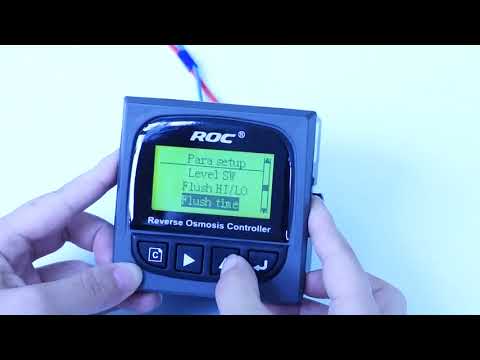Benefits of Using a Conductivity Probe for Monitoring Slurry Conductivity
Conductivity probes are essential tools for monitoring the conductivity of slurry in various industrial processes. Slurry, a mixture of solid particles suspended in a liquid, is commonly used in industries such as mining, wastewater treatment, and food processing. Monitoring the conductivity of slurry is crucial for ensuring the efficiency and effectiveness of these processes.
One of the key benefits of using a conductivity probe for monitoring slurry conductivity is its accuracy. Conductivity probes are designed to provide precise measurements of the electrical conductivity of a liquid, which is directly related to the concentration of ions present in the solution. This allows operators to accurately determine the concentration of solids in the slurry, which is essential for maintaining the desired consistency and quality of the final product.
In addition to accuracy, conductivity probes offer real-time monitoring capabilities, allowing operators to quickly detect any changes in slurry conductivity and take immediate action to address any issues. This real-time monitoring can help prevent costly downtime and production delays by identifying potential problems before they escalate.
| Product name | pH/ORP-8500A transmitter controller | ||
| Measurement parameter | Measurement Range | Resolution ratio | Accuracy |
| pH | 0.00\\uff5e14.00 | 0.01 | \\u00b10.1 |
| ORP | (-1999\\uff5e+1999)mV | 1mV | \\u00b15mV(Electric meter) |
| Temperature | (0.0\\uff5e100.0)\\u2103 | 0.1\\u2103 | \\u00b10.5\\u2103 |
| Temperature range of Tested solution | (0.0\\uff5e100.0)\\u2103 | ||
| Temperature component | NTC10K thermal element | ||
| (4~20)mA Current output | Channel No. | 2 channels | |
| Technical characteristics | Isolated, fully adjustable, reverse, | ||
| configurable, instrument / transmitting dual mode | |||
| Loop resistance | 400\\u03a9(Max)\\uff0cDC 24V | ||
| Transmission accuracy | \\u00b10.1mA | ||
| Control contact | Channel NO. | 3 Channels | |
| Electric contact | Semiconductor photoelectric switch | ||
| Programmable | Each channel can be programmed and point to (temperature, pH/ORP, time) | ||
| Technical characteristics | Presetting of normally open /normally closed state / pulse /PID regulation | ||
| Load capacity | 50mA(Max)AC/DC 30V | ||
| Data\\u00a0communication | MODBUS, RS485 standard protocol | ||
| Working power supply | DC 24V\\u00b14V | ||
| Overall power consumption | \\uff1c5.5W | ||
| Working environment | Temperature: (0~50) \\u2103 | ||
| Relative humidity: \\u2264 85%RH (non condensing) | |||
| Storage environment | Temperature: (-20~60) \\u2103 | ||
| Relative humidity: \\u2264 85%RH (non condensing) | |||
| Protection level | IP65 (with back cover) | ||
| Shape size | 96mm\\u00d796 mm\\u00d794mm (H\\u00d7W\\u00d7D) | ||
| Opening size | 91mm\\u00d791mm(H\\u00d7W) | ||
| Fixed mode | Panel mounting type quick fixed | ||
Furthermore, conductivity probes are easy to install and operate, making them a cost-effective solution for monitoring slurry conductivity. Many conductivity probes are designed to be easily integrated into existing systems, requiring minimal setup and calibration. Once installed, conductivity probes require little maintenance and can provide reliable measurements over an extended period of time.
Another benefit of using a conductivity probe for monitoring slurry conductivity is its versatility. Conductivity probes are available in a variety of configurations to suit different applications and environments. Whether you are monitoring slurry in a harsh industrial setting or a controlled laboratory environment, there is a conductivity probe that can meet your specific needs.
Moreover, conductivity probes are highly durable and resistant to corrosion, making them ideal for use in challenging conditions. Many conductivity probes are constructed from rugged materials such as stainless steel or titanium, ensuring long-term reliability and performance even in harsh environments.
In conclusion, conductivity probes offer a range of benefits for monitoring slurry conductivity in industrial processes. From their accuracy and real-time monitoring capabilities to their ease of installation and versatility, conductivity probes are essential tools for ensuring the efficiency and effectiveness of slurry-based operations. By investing in a conductivity probe, operators can improve process control, reduce downtime, and ultimately enhance the quality of their final product.








